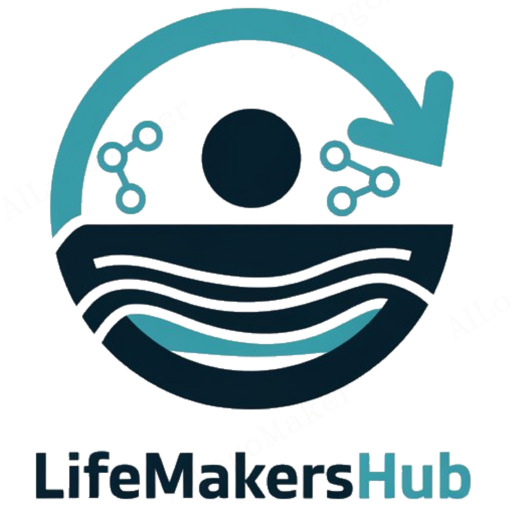Career Planning Skills for Success: How to Boost Your Career?
Setting clear objectives is the foundation of professional growth. It starts with understanding your strengths and aligning them with opportunities that fit your aspirations. This process involves self-assessment, research, and taking deliberate steps to achieve your goals1.
Your journey isn’t limited to a single role. It’s a dynamic path filled with diverse experiences and opportunities. By focusing on transferable abilities, you can adapt to changing trends and stay competitive in your field2.
Success requires ongoing learning and adaptability. Whether it’s improving communication or enhancing problem-solving skills, every step you take brings you closer to your objectives. This guide will walk you through actionable strategies to help you navigate your path with confidence.
Key Takeaways
- Clear objectives are essential for professional growth.
- Self-assessment helps align strengths with opportunities.
- Transferable abilities are key to adapting to changes.
- Ongoing learning ensures long-term success.
- Actionable strategies make your journey more manageable.
Understanding Your Career Through Self-Assessment and Exploration
Self-assessment opens the door to discovering your true potential. It’s the first step in aligning your strengths, values, and interests with the right opportunities. By understanding who you are, you can explore various paths and make informed decisions that lead to long-term fulfillment.
Identifying Your Strengths, Values, and Interests
Tools like the Myers-Briggs Type Indicator (MBTI) and the Strong Interest Inventory (SII) can help you gain clarity. These assessments take 20-40 minutes to complete and provide insights into your personality and preferences3. Reflective exercises, such as journaling or card-sorting activities, also enhance self-awareness and help you identify what truly matters to you.
Engaging in self-assessment increases career satisfaction by 70% and boosts confidence in decision-making4. It’s a powerful way to validate your ideas and uncover new possibilities.
Gathering Accurate Career Information
Once you understand yourself, the next step is gathering reliable information. Resources like the Occupational Outlook Handbook and credible online platforms provide details about over 900 careers3. This data helps you explore roles that align with your interests and skills.
Internships and job shadowing offer hands-on experience, while informational interviews allow you to connect with professionals in your desired field. Building a strong network with employers and peers can open doors to opportunities you might not find otherwise.
These exploration techniques gradually build progress toward setting focused career goals. By combining self-assessment with accurate information, you can confidently navigate your journey and achieve your aspirations.
Career Planning Skills for Success

Building a roadmap for your professional journey starts with clarity and purpose. It’s about defining what you want to achieve and creating a structured path to get there. This process not only helps you stay focused but also ensures you’re moving in the right direction.
Establishing Clear and Attainable Career Goals
Setting SMART goals—specific, measurable, attainable, relevant, and time-bound—is a proven way to achieve success. For example, instead of saying, “I want to grow in my field,” aim for, “I will complete a certification in digital marketing within six months.” This approach keeps you accountable and motivated5.
Start by reflecting on your strengths and interests. Use tools like personality assessments or career coaching to gain deeper insights. These resources can help you identify what truly matters to you and align your goals with your values5.
Regularly reassess your objectives to ensure they remain relevant. As industries evolve, so should your goals. This adaptability is key to staying competitive and fulfilled in your professional life6.
Targeting the Right Career Opportunities
Once your goals are set, focus on finding opportunities that align with them. Research industry trends to understand where demand is growing. For instance, technology-related fields are projected to grow by 22% from 2020 to 20306.
Networking is another powerful tool. Studies show that 70% of professionals believe networking is essential for advancement6. Attend industry events, connect with peers, and seek mentorship to uncover hidden opportunities.
Finally, consider internships or job shadowing to gain firsthand experience. These opportunities not only enhance your skills but also increase your chances of landing a role that matches your strengths7.
By combining strategic goal-setting with targeted research, you can navigate your professional journey with confidence and purpose.
Enhancing Your Professional Growth and Personal Brand
Crafting a personal brand is the cornerstone of long-term professional growth. It’s about showcasing your unique value and positioning yourself as a standout in your industry. This process requires intentional effort, but the rewards are worth it.
Marketing Yourself Effectively
Effective self-marketing starts with understanding your strengths and communicating them clearly. Over 90% of recruiters use LinkedIn to find promising candidates, so optimizing your profile is essential8. Use a professional headshot—profiles with one receive 14 times more views8.
Your résumé should highlight your achievements and align with your goals. Tailor it for each opportunity to show how you fit the role. Networking is equally important—85% of jobs are filled through connections9.
Building and Refining Your Personal Brand
A strong personal brand sets you apart in competitive industries. Start by defining your unique value proposition. What makes you different? Communicate this consistently across platforms like LinkedIn, Twitter, and even Reddit, which has over 73.1 million daily users8.
Engage in professional development programs to enhance your skills and stay relevant. Hiring managers value continuous learning, with 70% emphasizing its importance9. Attend workshops, conferences, and networking events to expand your reach.
| Action | Benefit |
|---|---|
| Optimize LinkedIn Profile | Increases visibility to recruiters |
| Attend Networking Events | Expands professional connections |
| Engage in Development Programs | Enhances skills and industry relevance |
Refining your personal brand is an ongoing process. Regularly update your online presence to reflect your current goals and achievements. This strategic approach ensures long-term success and opens doors to exciting opportunities.
Developing Career Management Skills for Today’s Evolving Job Market

Navigating today’s job market requires a blend of adaptability and strategic thinking. Organizations value individuals who align their personal goals with broader objectives, making career management a critical skill10. Whether you’re aiming for a promotion or exploring new opportunities, mastering these abilities can set you apart.
Mastering Communication and Interpersonal Skills
Strong communication is the backbone of professional success. Employees with these abilities are often viewed as influential leaders10. Start by actively listening and asking the right questions during team discussions or interviews. This not only builds rapport but also helps you gather valuable insights.
Networking is another great way to enhance your interpersonal skills. Studies show that 80% of job openings are filled through connections11. Attend industry events, join professional groups, and engage in meaningful conversations to expand your reach.
Embracing Adaptability and Continuous Learning
Adaptability is key to thriving in a constantly changing environment. The Lumina Spark tool, used in 40 countries, helps individuals measure 72 personality qualities to enhance self-awareness and professional development10. This strategy ensures you stay relevant and competitive.
Continuous learning is equally important. Employees who engage in skill enhancement are 45% more likely to receive promotions11. Enroll in workshops, pursue certifications, and stay updated on industry trends to keep your knowledge fresh.
Strengthening Leadership and Team Management Abilities
Effective leadership requires a deep understanding of team dynamics. Start by setting clear goals and fostering open communication channels. This approach not only boosts productivity but also builds trust within your organization.
Hands-on experience is a great way to refine your leadership skills. Consider taking on projects that challenge you to manage diverse teams. Feedback from peers and mentors can also provide valuable insights for improvement12.
| Action | Benefit |
|---|---|
| Enhance Communication Skills | Builds influence and rapport |
| Engage in Continuous Learning | Increases promotion opportunities |
| Develop Leadership Abilities | Improves team productivity |
“The only way to do great work is to love what you do and continuously improve.”
By focusing on these areas, you can position yourself for long-term success. Remember, career management is an ongoing process that requires dedication and a proactive mindset.
Conclusion
Taking charge of your professional journey starts with understanding your unique strengths and aligning them with the right opportunities. Self-assessment is a critical first step, helping you identify areas where you excel and where you can grow13. By building on this knowledge, you can make informed decisions that benefit your long-term goals.
Continuous learning and adaptability are key to staying relevant in today’s dynamic job market. Studies show that 70% of professionals believe ongoing education is essential for advancement14. Networking also plays a vital part, with 85% of jobs filled through connections14. These strategies ensure you remain competitive and open to new possibilities.
Finally, crafting a strong personal brand sets you apart. Highlight your unique value and consistently communicate it across platforms. This approach not only enhances your visibility but also positions you as a standout in your field15.
By embracing these steps, you can navigate your path with confidence and purpose. Start today—your future self will thank you.
FAQ
How can I identify my strengths and interests for career growth?
What’s the best way to gather accurate information about a career path?
How do I set clear and achievable career goals?
What strategies can help me target the right job opportunities?
How can I effectively market myself to potential employers?
Why is building a personal brand important for career success?
How can I improve my communication and interpersonal skills?
Why is adaptability crucial in today’s job market?
What steps can I take to strengthen my leadership and team management skills?
Source Links
- 10 Essential Skills for Career Development: A Guide to Building Your Professional Toolkit
- 10 essential skills you’ll need for career success
- Career Exploration & Self-Assessments
- The Importance of Self-Assessment in Career Planning | GCC
- Career Planning: Shaping Your Path to Success in 7 Steps
- What is Career Planning and How Can It Set You Up for Success? A Comprehensive Guide | Leland
- Successful Career Planning | Fredonia.edu
- Boosting Your Career with Personal Branding: 10 Tips
- Navigating Career Growth: Strategies for Professional Development
- Career Management Skills: The Key to Career Success | EWF
- What is Career Development? Understanding its Importance and Strategies for Success
- Developing Employee Career Paths and Ladders
- Unlocking Success: Benefits of Career Planning – tscfm.org
- How did you come to conclusion with your career option?
- Career Decision Making | Career Center







